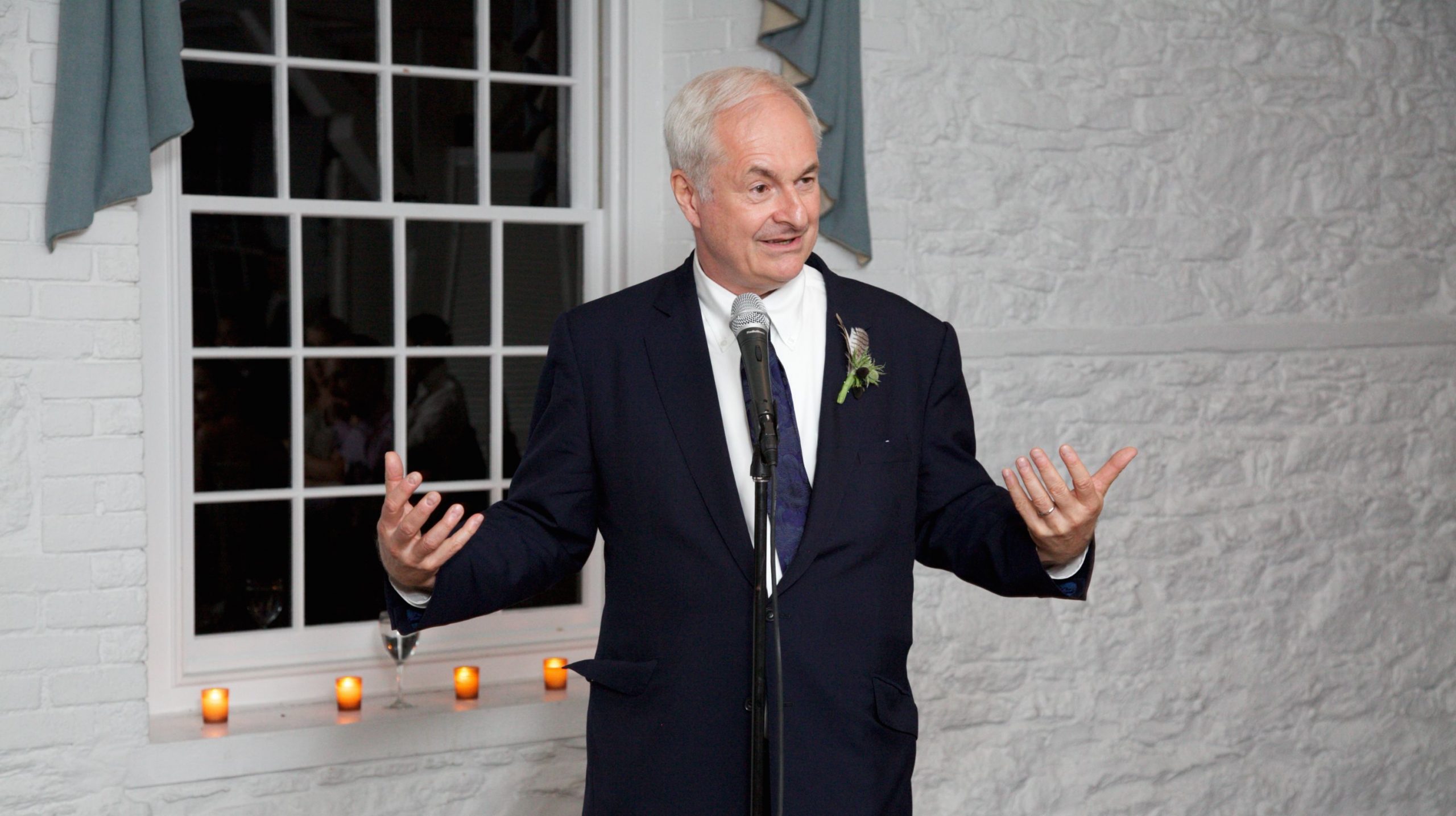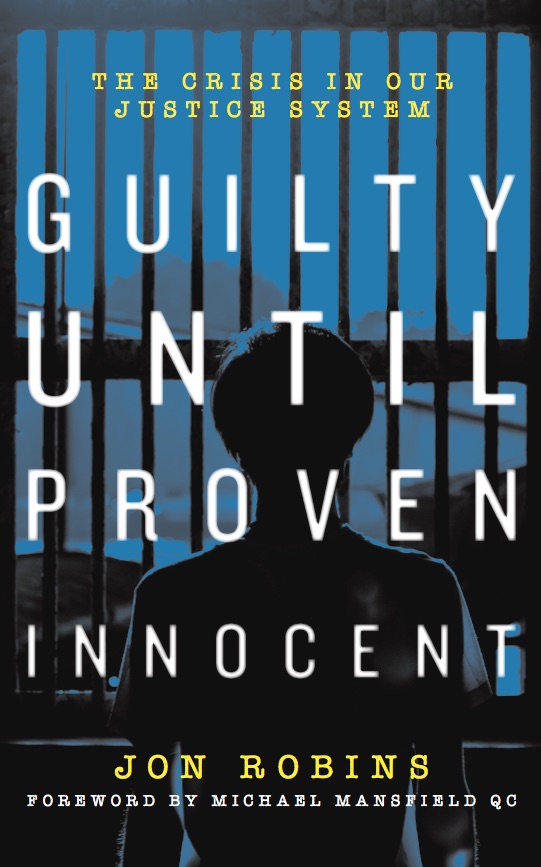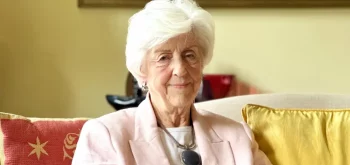‘The state as expressed through its agencies – the police and Crown Prosecution Services – waged war against me for a year.’ It has been over 14 months since the CPS dropped the case against broadcaster Paul Gambaccini and the fury at his treatment at the hands of the state remains. The DJ had been on bail for a year – ‘12 months of trauma’, as he put it – having been swept up in the Operation Yewtree investigation. ‘Those people who stood by me are my truest friends,’ he says. ‘They remain the core of my life.’
Paul Gambaccini picks his words with the precision that one might expect from a broadcaster whose career has spanned four decades and covered all the main networks. He is the only presenter to have had his own series on BBC Radio 1,2, 3 and 4.
‘Bernard Hogan-Howe’s Metropolitan police tried to destroy my life and end my career for their own public relations purposes,’ he tells me. ‘That is a stark sentence. But that’s the entire episode distilled to a kernel.’
The DJ doesn’t want to be a ‘renta-quote’ – he’s only done one interview (for the Daily Mail) since his book Love Paul: My Year under the Yewtree came out last year. In fact, he wants to do another interview about his wretched year like ‘a hole in the head’.
But, there is unfinished business; the rage has yet to subside and he is painfully aware that other innocent people, not all celebrities, are swept up in what he repeatedly calls ‘the witch-hunt’. ‘I am not so paranoid a person to think I have been singled out for uniquely bad treatment,’ he tells me.
-
This interview features in Guilty Until Proven Innocence: The crisis in our justice system HERE published by Biteback Publishing
-
Foreword written by Michael Mansfield QC.
-
On November 3 2018, Paul Gambaccini who began legal action against the CPS last year, received a five-figure payout and an apology from prosecutors. He was reported to be continuing a separate damages claim against the Metropolitan Police.

Paul Gambaccini: a victim of ‘a flypaper investigation’
When Paul Gambaccini appeared before the House of Commons’ justice committee, he told its members that he had been a victim of a ‘flypaper’ investigation: a high profile suspect’s name is hung up in public, endlessly re-bailed to keep the investigation ‘live’, with the hope that the original accusation draws further complainants out of the wood-work.
The DJ reckons that his serial re-bailings were deliberately timed to coincide with developments in cases of other celebrities. In his book, he helpfully provides readers with an annotated timeline for his case. He was rebailed on the day Rolf Harris was convicted and, again, when Max Clifford was sentenced.
The justice committee agreed. ‘Police use of the “flypaper” practice of arresting someone, leaking the details, then endlessly re-bailing them in the vague hope that other people come forward is unacceptable and must come to an immediate end,’ warned the group’s chairman Keith Vaz.
When the justice committee published their report, the MP explicitly called on the CPS to ‘write and apologise to Mr Gambaccini, explaining why the case took so long when the original police investigation was dropped for insufficient evidence a month before he was even arrested’.
The DJ isn’t holding his breath.
‘A science fiction case’
Paul Gambaccini was woken at 4.38AM on October 29, 2013 by a ring on the doorbell. He was arrested in connection with allegations of historic sex abuse against two teenagers, his possessions taken away by the sackload and he was taken down to Charing Cross Police station. Over the next year, a successful and busy career ground to a halt; the numerous good causes that took his money in happier times dropped him; and he racked up tens of thousands of pounds in legal fees.
And for what? Paul Gambaccini said that the allegations against him amounted to nothing more than ‘a science fiction case’ dreamed up by a fantasist and one that could have been easily demolished if the police had taken an objective view.
Since the charges were dropped, he has discovered that the original police investigation was closed for ‘insufficient evidence’ a month before he was arrested. The later investigation only began when the first complainant – Gambaccini calls him ‘Primary’ – named a second supposed witness (‘Secondary’) to corroborate claims of sexual activity between 1978 and 1984 when the two were teenagers.
The police are compelled to act when someone is accused by two different people – a point explained to him by his friend Lord Brian Paddick, a former Metropolitan police deputy assistant commissioner as recorded in his book. But, Gambaccini protested, Secondary and Primary were not two different people ‘in the way that someone from Hull and someone from Taunton would be’. Instead they were ‘lifelong friends’ who had three dozen years to come up with a story, he said.
Unsurprisingly conversation with Gambaccini (aka the Professor of Pop) is littered with music references. When he is arrested, he penned the following emphatic denial:
‘On Monday night, I attended an excellent production of the Kander and Ebb musical The Scottsboro Boys at the Young Vic Theatre. It concerned a group of black men in Alabama in the 1930s who were falsely accused of sexual offences. Within hours, I was arrested by Operation Yewtree. Nothing has changed, except this time there was no music.’
The DJ draws a parallel between the American lynch mob and what he repeatedly calls the ‘witch-hunt’. ‘I lived through this, just as I lived through McCarthyism. This is why I recognise this not as a unique event but as a recurring event in history, like the witch trials in Salem.’
The DJ reckons that he was waiting for the knock on the door ever since he spoke out about Jimmy Savile following the 2012 documentary that first revealed the shocking scale of his abuse. ‘Even at this distance it is incendiary to mention his name because he has become more – or less – than a human being,’ Gambaccini says. ‘He is a monster in public mythology.’
Gambaccini believes that in the over-heated post-Savile atmosphere it was only a matter of time before someone pointed a finger in his direction.
As he says: ‘If all it takes is somebody to make a call to the police and they will be believed, after decades of people listening and seeing my programmes, I thought it was a 50-50 chance.’
Gambaccini attacks the ‘fundamental misconception’ shared by the police and CPS that if an accuser comes forward they must be telling truth because ‘it takes courage to come forward’.
‘Problem,’ he says. ‘It takes equal courage for fantasists and distressed individuals to come forward, as it does for a genuine victim. Look, my heart goes out to the genuinely abused. They have had had to watch as millions of pounds of publicly-funded money has been wasted on a wild goose chase with hardly any geese; whilst real cases in less glamorous circumstances go on uninvestigated.’
In his own case, Gambaccini suspects that Secondary was ‘never interviewed – at least never interviewed in a way that his evidence would be legally admissible’. His lawyer, Kate Goold of Bindmans managed to obtain a chronology of the case through disclosure and ‘there is the date I was accused by Primary, then the case is dropped – insufficient evidence – and two weeks later ‘victim 2’ is identified; but it never says ‘victim 2’ is interviewed.’
‘I’d like the CPS to release my entire file. There cannot be anything in it,’ he says. ‘Since I don’t actually know my accuser, there can be no photographs, no correspondence – all there could possibly be is lurid fan fiction. So release the whole thing!’

Paul Gambaccini interviewing Berry Gordy & Vicki Wickham
Gambaccini’s book possibly breaks new ground for the self-aggrandizing celebrity bio genre. It is an unflinching account of a successful man – popular and venerated by his peers – who overnight finds himself ostracized and cut off from society. ‘My name is Kafka, Franz Kafka,’ is how his book begins.
‘Hospitality in someone’s house is an honour these days,’ he writes at one point. ‘It is a personal commitment in the face of the opposition of the state.’ The indignity that all that implies is clearly still painful. Towards the end of the interview Gambaccini recalls a police officer using his toilet who, pointing at a photograph, later asked: ‘Who are these boys?’ They were his godsons.
‘To face the full weight of the state with unlimited financial resources trying to prove you are what they would like you to have been is a pretty rare experience. At least I hope it is rare,’ Gambaccini says.
The police put him on what he calls ‘a life diet’. The broadcaster was once named Philanthropist of the Year when he raised £300,000 to help save the Terrence Higgins Trust after its grant was cut. ‘Charities that I have supported for decades just sweated off – as though I had been to a spa. I am in no hurry to replace them. Now I am concentrating on a true core of my life.’
Bobbies on bicycles
When Paul Gambaccini arrived in the UK he had an American’s sentimental view of England and its constabulary. He quotes Roger Miller’s 1965 England Swinging to me (‘Bobbies on bicycles, two by two’). It didn’t last long.
He describes himself as one of a generation of gay men ‘traumatised’ by the Met’s ‘pretty police’ campaign where good-looking officers acted as agents provocateurs to entrap gay men in public toilets.
That said, he stresses his belief that 90% of police ‘joined the force undoubtedly to do good and not to take the Orwellian zealotry of their leaders’.
His considerable ire is targeted at the police leaders – and the ‘inconceivable stupidity’ of their investigations.
‘So far in these investigations against famous people, we have had cases that have involved a room that never existed, a motor vehicle not yet invented, a TV programme not yet gone to air, friends who didn’t know each other, friends who are actually enemies, murderers who never existed and a perpetrator not yet born,’ he said. ‘If you are dealing with so called historic sexual offences, then check the history.’
In his own case, Gambaccini points out that the police were paying for their officers to jet around the world to interview witnesses who might assist their case against him; whilst failing to chase up easy leads that might demonstrate his innocence.
‘My accuser did not realise this but he was claiming to be the man who took my virginity,’ he says. The DJ told the police who that man was. ‘The police never contacted him. It would’ve taken 10 seconds to have tracked him down. The guy is an RAF veteran. They spent 18 months on the fraud and they wouldn’t bother to spend 10 seconds on the real guy.’
He predicts Cliff Richard, whose home was raided under Yewtree and filmed by the BBC, will never be convicted of any criminal offence ‘down to and including traffic offences’.
It was reported this week the Scotland Yard’s investigation into an alleged VIP paedophile ring is set to close after police failed to find any evidence. Operation Midland was launched 14 months ago on the basis of a single witness known only as ‘Nick’. The former Tory MP Harvey Proctor, who had been arrested twice, claimed that he was the victim of a ‘homosexual witch hunt’. Proctor went on to name eight high profile figures who featured in Nick’s claims – including Leon Brittan, Ted Heath, former heads of MI5 and MI6 and ex armed forces chief Lord Bramall.
‘Throughout this witch-hunt there has been this ludicrous tendency to conflate homosexuality with paedophilia,’ Gambaccini says. He calls the Metropolitan police ‘an intellectual and moral nullity’.
‘They are interested in results not justice and public relations rather than truth. If it helps their PR to paint elderly gay people as paedophiles, they will – even if it is intellectual preposterous and morally repugnant.’
Paul Gambaccini
Gambaccini reckons that the police found Nick to be ‘credible and true’ – as Det Supt Kenny McDonald put it – because he was ‘a male middle age heterosexual professional’. ‘They were looking at themselves looking back at them,’ he says.
He points out that London is about 40% nonwhite and the force is 11% non white. ‘So this guy is white, straight and a man – yeah, they believe him because he is one of them. If he is gay, black or a woman, then good luck Charlie!’
If Yewtree was a football team it would have been relegated, quips the DJ. ‘Some 17 cases have been concluded of which two people have been sent to prison for the first time; three people have being sent to prison again; and two as yet unresolved. That’s an incredibly low rate of success.’
Sorry – the hardest word
When I ask the veteran DJ if he has had an apology from the police, he says: ‘I can’t ever look to the Met for either honour or decency. It is tough living in a country where you know that.’
Last month the Met’s assistant commissioner Patricia Gallan refused to apologise in relation to its investigation into Lord Bramall saying that to apologise for an investigation that did not lead to a charge would have ‘an harmful impact on the judgments made by officers and on the confidence of the public’. ‘According to Pat Gallan, the Met Police has the legal right to be dumb,’ laughs Gambaccini.
The broadcaster reserves his greatest anger for Britain’s most senior police officer. ‘Bernard Hogan-Howe is the villain of my life,’ he says. He is outraged Boris Johnson has recommended that his contract as Met Commissioner be extended. ‘Hogan-Howe is one of the great failures of policing – and yet Boris Johnson proposes to reward him for his failure,’ he says. ‘I would prefer Victor Willis.’ Willis, the DJ explains, is the police officer in the Village People. ‘At least Victor Willis has added to the sum total of happiness.’
A version of this article first ran on February 5, 2016








